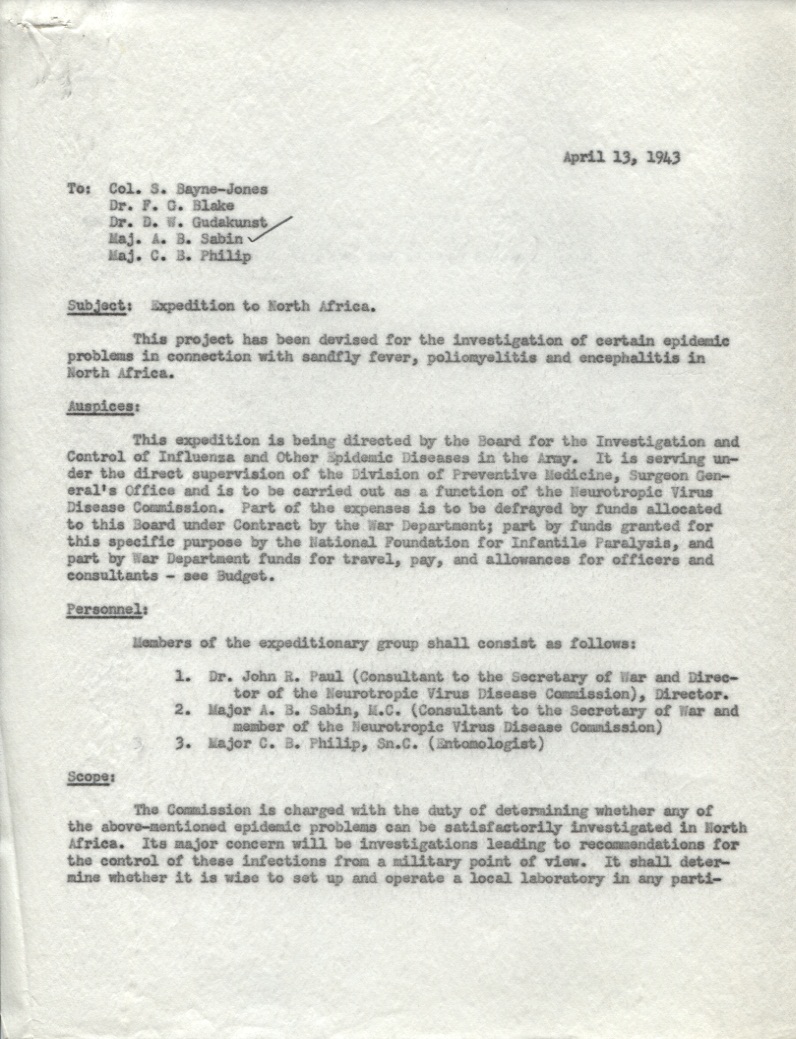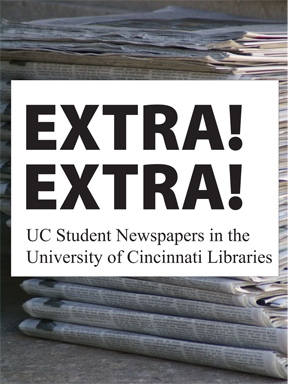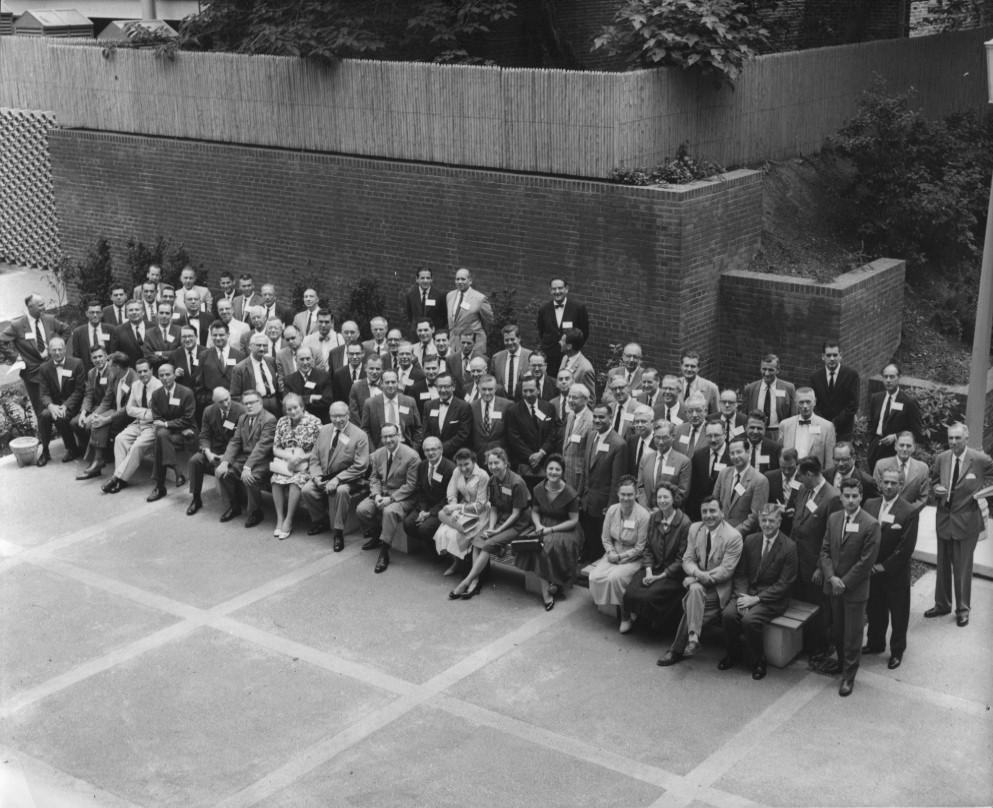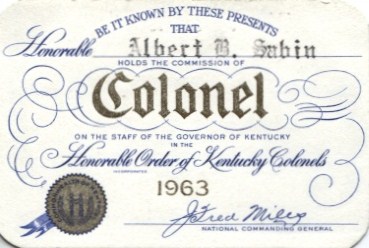UCit is performing additional maintenance on the university’s Internet environment this Saturday, Sept 10. The maintenance window will be between the hours of 12:01 a.m. and 4:00 a.m. During this time, Internet access is expected to be intermittent and the university’s private network that links to Veteran’s, Children’s and UC Health will be unavailable.
The Albert B. Sabin Digitization Project: John R. Paul and North Africa
When I was reading David M. Oshinsky’s Polio: An American Story awhile back, I noted a book that he briefly mentioned called A History of Poliomyelitis by John R. Paul, MD. I finally got around to looking at this book a little closer, and I thought that I would give you a glimpse into the relationship between Dr. Paul and Dr. Sabin.

Memorandum from Dr. Francis Blake, President for the Board for the Investigation and Control of Influenza and other Epidemic Diseases in the Army, 1943
According to the Yale University Archives and Manuscripts website, Dr. Paul was at the Yale School of Medicine for over 30 years, where he studied many diseases, including polio. Through his research on this disease, as well as his involvement as director of the Neurotropic Virus Disease Commission of the Armed Forces Epidemiological Board and the Virus Commission during the 1940’s, he and Dr. Sabin corresponded a lot! Our collection has several different folders dedicated to correspondence between Dr. Paul and Dr. Sabin, as well as other letters scattered throughout our Military Service, Oral Poliomyelitis Vaccine, and Poliomyelitis series. Continue reading
Holiday Hours
Please Note that most UC Libraries will be closed Monday, September 5 for Labor Day, except for the Health Sciences Library which will be open from 9am-5pm.
T. M. Berry Project: Progress Report
By Laura Laugle
A total of 223 boxes of the Theodore M. Berry Manuscript Collection have now been processed, leaving just six remaining. In the final collection there will be approximately 180 linear feet with around 475,000 total documents and about 1,000 photographs dating from the 1910s though 2000. The inventory in progress includes a detailed list of the titles and contents of folders, along with series and sub-series for the boxes in which each of the folders is stored. This list will be used for a final Encoded Archival Description finding aid that will be available on OhioLINK and the Internet for researchers using the collection. The completion date for the project is set for February 2012. Continue reading
Service Note: Internet Service Interruptions Sept. 2-4
To meet the university’s needs for increased Internet bandwidth, UCIT will perform an upgrade to the Cincinnati Education Research Fiber-loop (CERF) ring during Labor Day weekend. The CERF ring is the backbone providing Internet and Internet2 connectivity for UC, Xavier, and Cincinnati State Technical and Community College. The upgrade will begin at 6:00 p.m., Friday, September 2 and is expected to be complete by 1:00 a.m. Sunday, September 4. Users should expect intermittent service interruption to the Internet during this window, however there is a possibility for intermittent Internet outages during the entire maintenance period.
Historical City of Cincinnati Birth and Death Records Now Available Online
The City of Cincinnati Birth and Death Records from 1865 to 1912 are now fully online and available for research and study at http://digitalprojects.libraries.uc.edu/Births_and_Deaths/.
Extra! Extra! UC Student Newspapers in the University of Cincinnati Libraries
 A new exhibit on display on the 4th floor of Blegen Library traces the development of student newspapers at the University of Cincinnati from the publication of the first paper in 1880 to today.
A new exhibit on display on the 4th floor of Blegen Library traces the development of student newspapers at the University of Cincinnati from the publication of the first paper in 1880 to today.
The exhibit features a timeline of events in the history of student newspaper production, highlighting the run dates, a short description, and the groups behind the various publications. Examples of each newspaper are displayed.
The Albert B. Sabin Digitization Project: Reports from a Scientific Meeting

Attendees of the Second International Conference on Live Poliovirus Vaccines pose for a group photograph.
Another photograph from our collection can be seen here. It was taken during the Second International Conference on Live (Attenuated) Poliovirus Vaccines, which was held in June 1960 at Georgetown University in Washington D.C. and sponsored by the Pan American Health Organization, the World Health Organization, and the Sister Elizabeth Kenny Foundation. According to the back of the photo, participants came together “to discuss [the live polio vaccine’s] present status, trends and possibilities for use of this type of vaccine to delineate guidelines for conduct of further work and field programs.” Dr. Sabin was in attendance. Can you spot him in the crowd? Continue reading
Interlibrary Loan System Restored
The Albert B. Sabin Digitization Project: Another Honor
What do Betty White, George Bush, Pope John Paul II and Whoopi Goldberg all have in common with Dr. Albert Bruce Sabin? They were all named Kentucky Colonels!
In Dr. Sabin’s archives is a letter and membership card from the Honorable Order of the Kentucky Colonels. I found these documents to be interesting, especially since one of my colleagues working on the Sabin grant, Linda Newman, is also a Kentucky Colonel. The mission statement of this exclusive organization is “[t]he Honorable Order of Kentucky Colonels, Inc. is irrevocably dedicated to and is organized and operated exclusively for charitable purposes…” The Colonels support many different causes, such as purchasing wheelchairs and books for children, in order to support their mission. Continue reading

